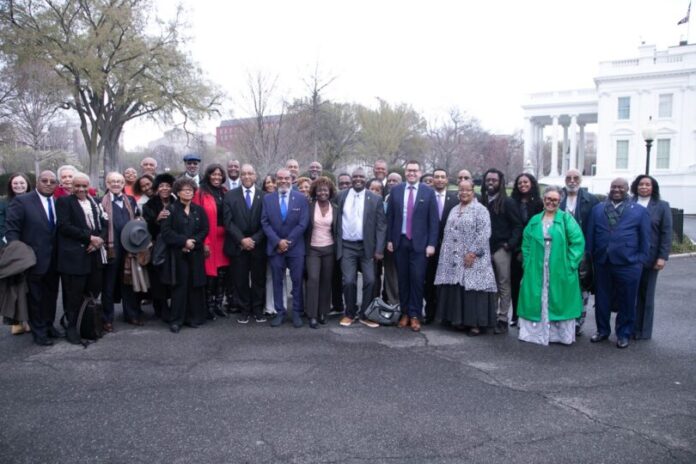
By Stacy M. Brown, NNPA Newswire Senior National Correspondent
The media has always been a vital pillar of democracy because it informs citizens, holds governments at all levels accountable, and provides a platform for diverse opinions and commentary. Despite its importance, journalism has struggled to remain relevant and credible in the age of political polarization and distrust in traditional outlets and newer technologies.
Mainstream media produces and disseminates news through various outlets, such as television, radio, and newspapers. These outlets, which include CNN, ABC, NBC, CBS, and Fox, and predominately white-owned publications like the New York Times, Washington Post, and others, also have websites, podcasts, social media, and aggregators. All of whom have collectively failed to report news favorable or meaningful to the 47 million descendants of Africans who call America home.
A recent Pew Research Center survey found that Black Americans are more critical of the media than any other group. Most respondents said the media doesn’t adequately cover issues pertinent to Black America and that coverage of Black communities is often negative or biased.
The death of George Floyd under a Minneapolis police officer’s knee outraged millions and set off protests that brought many Black people into the streets in ways they never had before. As violence, property damage, and efforts to reconcile and reform the police force ebbed and flowed, Black leaders in communities across the country pressed for change and pushed the media to do more to report on and analyze what was unfolding.
Some in the industry responded to the outrage and calls for change by promising to diversify their staff and hire more journalists of color. They also pledged to shed light on the countless positive stories emanating regularly from Black neighborhoods. But experts say those pledges have been hard to keep, and the progress has either proven slow or nonexistent.
The recent study revealed that four in five African Americans mistrust mainstream media, a large but understandable percentage, particularly given how news coverage has resorted to its pre-George Floyd perceptions.
The falsifications and broken promises of mainstream media serve as a reminder that the Black Press is still the only news source that African Americans can trust. On March 16, 1827, in New York City, John B. Russwurm and Samuel Cornish founded Freedoms Journal, the first newspaper owned by, led by, and for Black Americans in the United States. From the beginning, the goal of the Black Press was to provide a voice for African Americans while idealistically uplifting and validating them.
By addressing topics such as women, youth, style, and social mobility, the Black Press sought to create a distinct identity among its readers. Black-owned newspapers of the time also played a critical role in the community by reporting on lynchings and providing an outlet for dissenting voices.
The Black Press also helped to ignite such epochal movements as the Harlem Renaissance and Black Power, and it played a central role in the later struggle for civil rights.
“It’s too bad we are still talking about these issues. But our leaders and Black people are speaking louder,” Ann Breedlove, who marched on Washington more than 60 years ago with Dr. Martin Luther King Jr. and again to observe its anniversary in 2023, told NBC News during the most recent march.
“We’re tired — sick and tired — of asking for justice. It’s time to fight back. I’m a great-grandmother who remembers the Ku Klux Klan raiding our house and us having to get under the bed when they came on their horses. Today is different. That’s not happening. But we still are getting it in different ways.”
“Our voices are going to be louder than the politicians,” she added, “who are not doing what they need to do to help us.”


